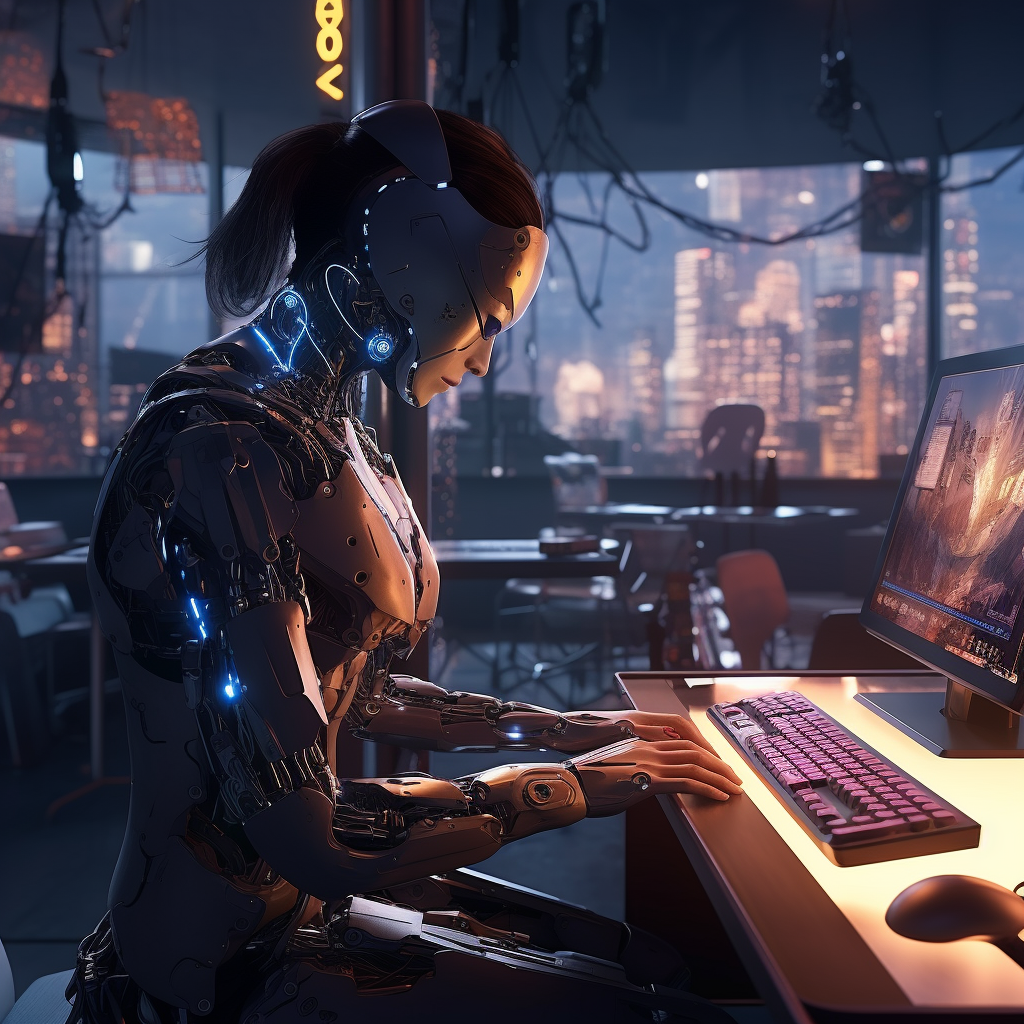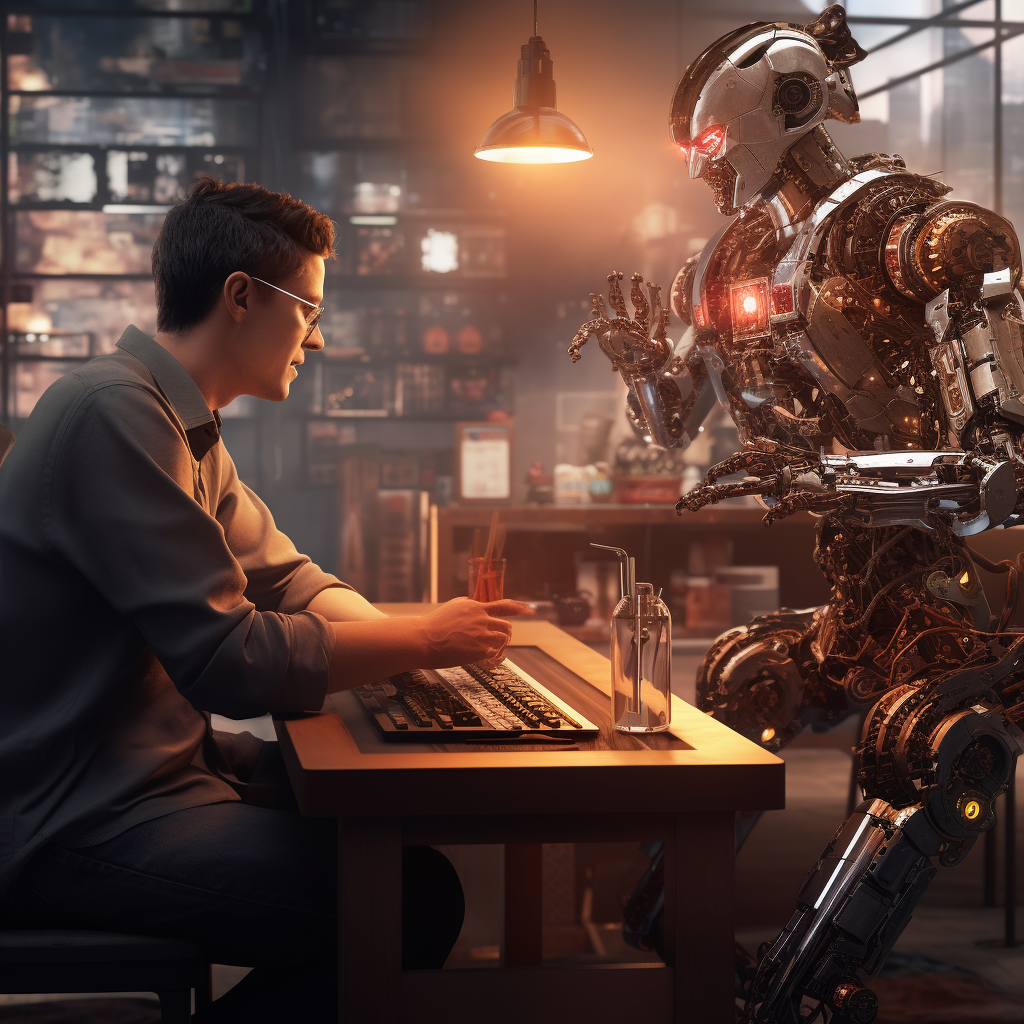The discussion around Artificial Intelligence (AI) and its potential impact on the gaming industry has been going on for some time now. As AI technology becomes more advanced, it may have the ability to be a viable substitution for the human labor required to develop games. If true, this could drastically change how game development is approached—and possibly even remove many game designers from their roles in future projects. This begs the question: will AI replace game developers altogether? In this post, we’ll dive into what’s driving these conversations around artificial intelligence and its potential implications for the gaming industry as a whole.
Exploring the potential of AI in game development
As technology continues to advance, the potential of artificial intelligence (AI) in game development is becoming an increasingly exciting prospect. With AI, game developers can create more dynamic and interactive experiences that adapt to the player’s behavior and choices. AI can also be used to optimize game design, such as creating non-linear stories or generating virtual worlds. Additionally, AI can help lower development costs and reduce time-consuming tasks, such as playtesting. As AI technology continues to evolve, the possibilities for game development are only going to increase. It’s an exciting time for developers and gamers alike as we explore the full potential of AI in gaming.
Examining current AI-generated games and how they compare to those made by humans
Artificial intelligence has revolutionized the way we interact with technology, from chatbots to voice assistants. In recent years, AI-generated games have entered the arena, sparking debates about their quality and comparison to those made by human designers. Although AI-generated games have been improving steadily, they still lack the creativity and holistic thinking that human designers possess. While AI can efficiently generate levels and characters within certain parameters, it often fails to deliver the nuanced storytelling and emotional depth of games made by humans. However, there is no doubt that AI-generated games show promise, and as technology continues to advance, we may soon witness a new era of gaming where man and machine work hand in hand to create truly unique experiences.

Analyzing the current trends in game development and the implications of using AI
Over the past few years, the game development industry has been characterized by an increased reliance on artificial intelligence (AI). The use of AI has permeated every aspect of game development, from the creation of NPCs to the generation of complex landscapes. One of the most significant implications of this trend is the improved gaming experience it offers players. By incorporating AI, developers can create games that are more immersive and responsive than ever before. Additionally, the use of AI in game development has significant implications for the industry as a whole. It is driving innovation, opening up new possibilities for game creation, and pushing the boundaries of what is possible. Ultimately, these developments are paving the way for an ever-evolving gaming landscape that promises to offer players unparalleled experiences.
The potential security risks posed by using AI for game development
Over the past few years, we have seen rapid growth in the use of artificial intelligence (AI) for game development. From generating content to optimizing gameplay, AI has proven to be an invaluable tool in the industry. However, as with any technology, there are potential security risks associated with its use. The integration of AI into game development opens up new opportunities for cybercriminals to exploit vulnerabilities in the software. With AI-powered algorithms becoming more autonomous and complex, it becomes increasingly difficult to mitigate these risks. As developers continue to push the boundaries of what AI can do, it is crucial to remain vigilant in identifying and addressing potential security threats.
Discussing the ethical considerations of using artificial intelligence for game creation
Artificial intelligence has become increasingly prevalent in the world of game creation, allowing for more sophisticated and immersive experiences for players. However, with this technology comes additional ethical considerations that must be taken into account. One major concern is the potential for AI to perpetuate negative stereotypes or biases, whether intentional or not. Additionally, there are questions about the impact of AI on the job market for game developers and whether its use could lead to the loss of jobs in the industry. As the use of AI in game creation continues to grow, it is important that these ethical considerations are carefully examined and addressed to ensure fair and responsible use of this powerful technology.
Looking at potential solutions to bridge the divide between developers and AI-generated content
As the field of artificial intelligence continues to advance, developers are increasingly relying on AI-generated content to speed up their workflow and produce higher-quality output. However, this trend has also created a growing divide between developers and the technology they rely on. To bridge this gap, experts are exploring potential solutions, such as creating more user-friendly interfaces, improving transparency in the AI algorithms, and offering more training and support to developers. By addressing these challenges head-on, we can ensure that AI-generated content continues to be a valuable tool for developers, while also fostering greater understanding and collaboration between humans and machines.
AI technology continues to open up new possibilities in game development. Despite the ethical and security concerns, AI can offer developers a host of potential benefits. Those who use AI responsibly can benefit from its power to generate more engaging and intuitive content than ever before. The challenge for developers is to combine AI with human-created content so that there is a balance of creative expression that appeals to players. It’s an exciting prospect for gamers, developers, and everyone in between. With the right efforts, resources, and collaboration, we could be looking at a future that bridges the divide between humans and machines while helping create amazing gaming experiences!




